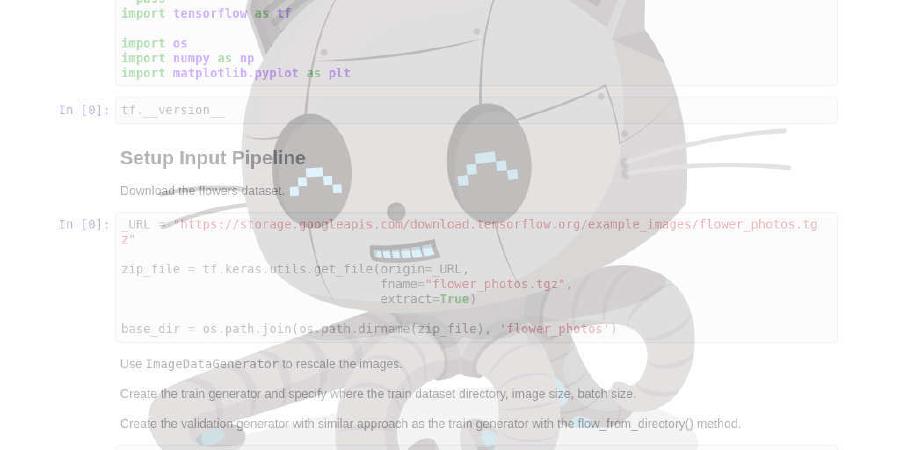MaayanLab/biojupies

Automated generation of tailored bioinformatics Jupyter Notebooks via a user interface.
| repo name | MaayanLab/biojupies |
| repo link | https://github.com/MaayanLab/biojupies |
| homepage | http://biojupies.cloud |
| language | HTML |
| size (curr.) | 70899 kB |
| stars (curr.) | 74 |
| created | 2017-10-25 |
| license | Apache License 2.0 |
BioJupies


Automated generation of Jupyter Notebooks for RNA-seq data analysis via user interface (http://biojupies.cloud).
Source code for the RNA-seq analysis plugins available at https://github.com/MaayanLab/biojupies-plugins.
Overview
- What is BioJupies?
- How can I generate notebooks using BioJupies?
- How can I upload my own RNA-seq data to BioJupies?
- What analyses can BioJupies perform?
- Can I contribute my RNA-seq analysis tools?
- How can I download and rerun my notebooks?
- References
What is BioJupies?
BioJupies is a web server which allows users to automatically generate Jupyter Notebooks from RNA-seq datasets through an intuitive interface, with no knowledge of coding required. It can be accessed for free from http://biojupies.cloud.

How can I generate a notebook using BioJupies?
Generating a notebook using BioJupies requires three steps:

- First, select an RNA-seq dataset you with to analyze. You can upload FASTQ files, gene expression tables, or use a search engine to browse over 6,000 public datasets published in the Gene Expression Omnibus and processed by ARCHS4.
- Second, add one or more computational tools to analyze the data. BioJupies currently supports 14 plugins to perform exploratory data analysis, differential gene expression, enrichment analysis, and small molecule queries.
- Third, generate the notebook with the desired settings. The notebook will be served to you through a URL, and can be easily downloaded and rerun on your local computer.
How can I upload my RNA-seq data to BioJupies?
Users can upload their RNA-seq datasets for analysis at https://amp.pharm.mssm.edu/biojupies/upload.

BioJupies currently supports uploading RNA-seq datasets in the FASTQ format or tables of gene-level counts.
Note: While the user may successfully generate a notebook from normalized gene expression counts or microarray data tables, the tools are NOT yet optimized to handle such data. Such results should be interpreted with caution.
The Enrichment Analysis and Small Molecule Query plugins currently support datasets uploaded with gene symbols as row identifiers. When uploading datasets with different identifiers (e.g. ENSEMBL IDs, Entrez IDs), please note that these plugins may return empty results.
What analyses can BioJupies perform?
BioJupies currently provides 14 RNA-seq data analysis plugins, divided into four categories. For more information about the plugins, visit https://github.com/MaayanLab/biojupies-plugins.

Can I contribute my RNA-seq analysis tools?
Developers are welcome to contribute their own RNA-seq data analysis plugins for integration in BioJupies. Once integrated, the plugin will be made available to all users for notebook generation and published on the BioJupies plugins GitHub repository.
To contribute your plug-in, please visit https://amp.pharm.mssm.edu/biojupies/contribute.
How can I download and rerun my notebooks?
After generating a notebook, users can download and execute it locally using the maayanlab/biojupies-notebooks Docker container.
To do this, the following steps are required:
- Pull the latest version of the Docker container from the console:
docker pull maayanlab/biojupies-notebooks
- Identify the notebook’s unique ID (a 9-character alphanumeric string) from its URL - e.g.
5DAHiejHN.

- Launch the Docker container.
docker run -it -p 8888:8888 -e NOTEBOOK_UID=5DAHiejHN maayanlab/biojupies-notebooks
Note: replace 5DAHiejHN with the UID of the notebook you wish to rerun.
- Access the local Jupyter Notebook server from your browser at port 8888.

- Execute and customize your notebook from the Jupyter server.

For more information about reusing notebooks, see https://amp.pharm.mssm.edu/biojupies/docker.
References
BioJupies is available as a pre-print on BioRxiv: BioJupies: Automated Generation of Interactive Notebooks for RNA-seq Data Analysis in the Cloud Torre, D., Lachmann, A., and Ma’ayan, A. (Cell Systems, 2018)
License
This project is licensed under the Apache-2.0 License - see the LICENSE.md file for details





